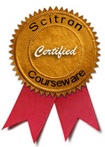Few would argue that the best place to train salespeople is in the field, observing the salesperson selling to real customers. However, the things sales managers and sales management in general typically get wrong are:
1. Training is not carried out on a regular basis for essential professional selling skills.
2. Training objectives are unclear
3. The manager jumps in during the sales call in order to save the day
4. Too much, often inaccurate feedback is given
5. The salesperson is left demotivated and unclear as to what to do next
For the field sales coaching to take place effectively there needs to be clear ground rules set between trainer/sales manager and trainee/sales person on how sales performance will be assessed. The process of field sales and sales territory planning and routing training should be very specific. It should be:
- Clear
- Concise
- Simple
The less training objectives you set the more effective the sales coaching results
Both the sales manager and the sales person need to be aware that changes in performance will not happen immediately and across the full range of selling skills.Because of this it is important to set clear training objectives that concentrate on covering a few training areas in depth, rather than a large range of objectives, with a view to producing quick results.
The field sales coaching/training should be structured as follows:
Before starting the field sales coaching day
Specificity is the key of success for any field sales coaching and training. The coach/sales manager needs to focus on one key skill for each sales coaching day. Gain agreement from the trainee/sales person to concentrate on the sales skill for that day. Sales managers must keep in mind that some other development areas may arise during the day. These should be documented to be tackled on future field coaching days. To get the best results from your field coaching intervention, you must keep the focus on the one agreed upon skill for the day.


















